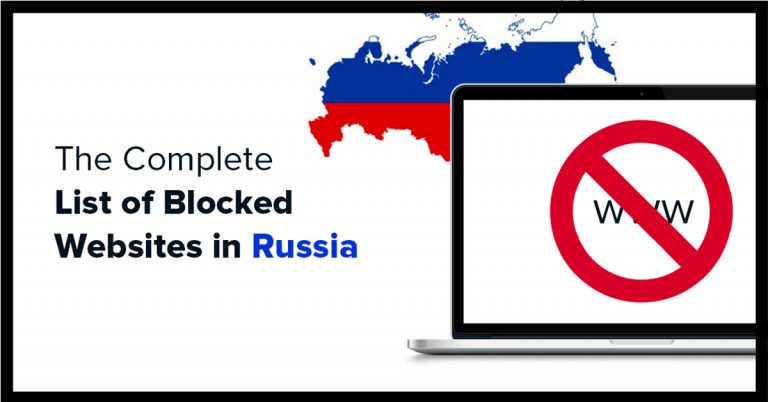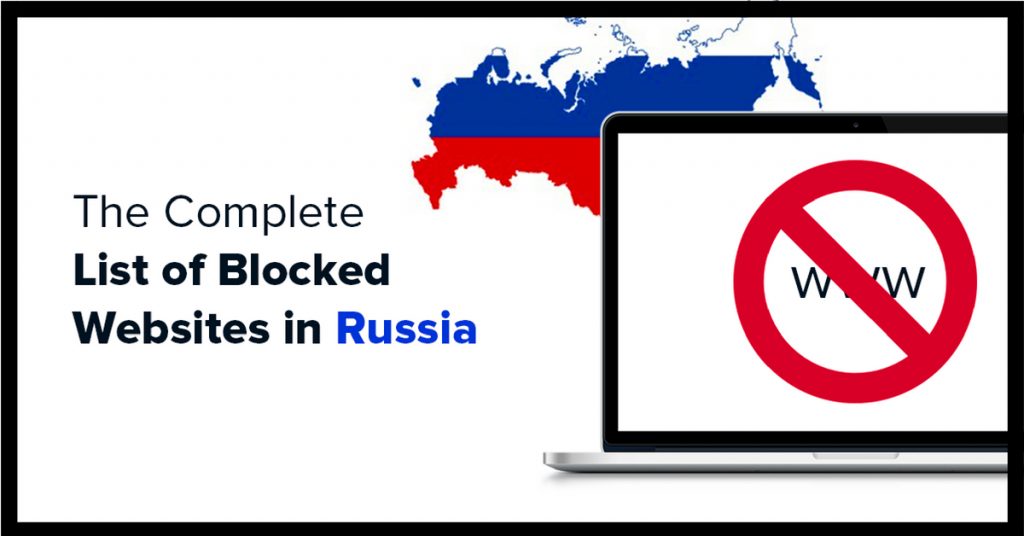Is it Blocked? The Ultimate List of Blocked Websites in Russia
Since the 2012 Moscow riots, Russia has intensified its efforts to censor the internet for residents. Russia initially enacted a law aimed at protecting residents from harmful content on the internet and also giving the government the power to take sites down when they are in breach of this law or when they promote politically sensitive content. As a result, many web services and apps have fallen victim including popular messaging app Telegram.
The terms of this censorship law require web services to store all Russian data in Russia and also comply with the country’s data retention laws which may include providing backdoor access for their spy agencies. This is very unfavorable for web services who vigorously promote freedom and privacy on the internet.
Whenever a breach of this controversial policy occurs, Russia immediately blocks such services or the affected content within the country. The block on Telegram’s services has recently led to other web tools and resources it uses including Google Cloud platform and Amazon Web Services (AWS).
VPNs can hypothetically let you bypass these government restrictions, but we don't condone this due to the legal nature of accessing banned or blocked sites. However, using a VPN to protect your connection and personal data in Russia is not illegal. Here’s an up-to-date list of the most reliable VPNs available on the market with numerous servers outside Russia.
How can a VPN help access blocked websites
Once a website has been found to be in violation of Russia’s surveillance law, ISPs in the country are mandated to block access to such sites. When this happens, it becomes nearly impossible to visit such sites from within the country. Russian web users can however bypass these restrictions by using a Virtual Private Network (VPN).
A VPN establishes a secure and confidential connection, enabling users to access the internet while safeguarding network security and privacy. It serves as the simplest method to bypass blocked sites in Russia by encrypting the user's internet traffic from any device and routing it through external servers located beyond the borders of Russia. VPNs effectively conceal users' original IP addresses and locations, ensuring anonymity when accessing restricted websites.
How to use a VPN in Russia
VPNs are typically offered as dedicated apps that help to encrypt your internet traffic and mask your location. To use one, you’ll need to subscribe to a plan that best suits your needs. You need to ensure that your chosen VPN service provider has servers located in other countries. Although there are free VPN providers available, you should be willing to spend a few dollars for a reliable one.
Furthermore, you should subscribe to a VPN before travelling to Russia to ensure that it works effectively. Users who failed to subscribe before travelling have in the past struggled to activate a plan from within Russia.





Please, comment on how to improve this article. Your feedback matters!